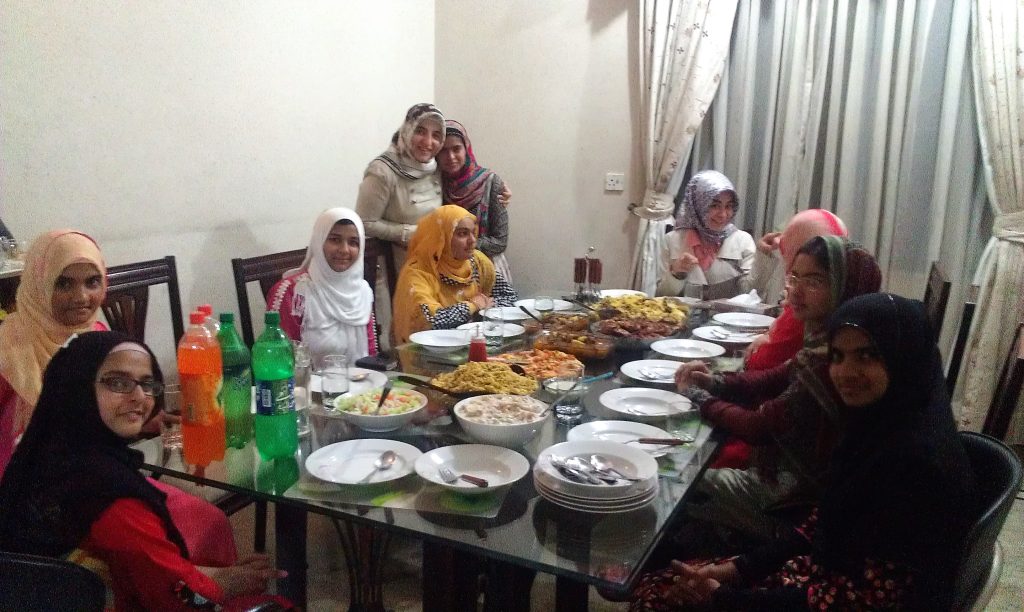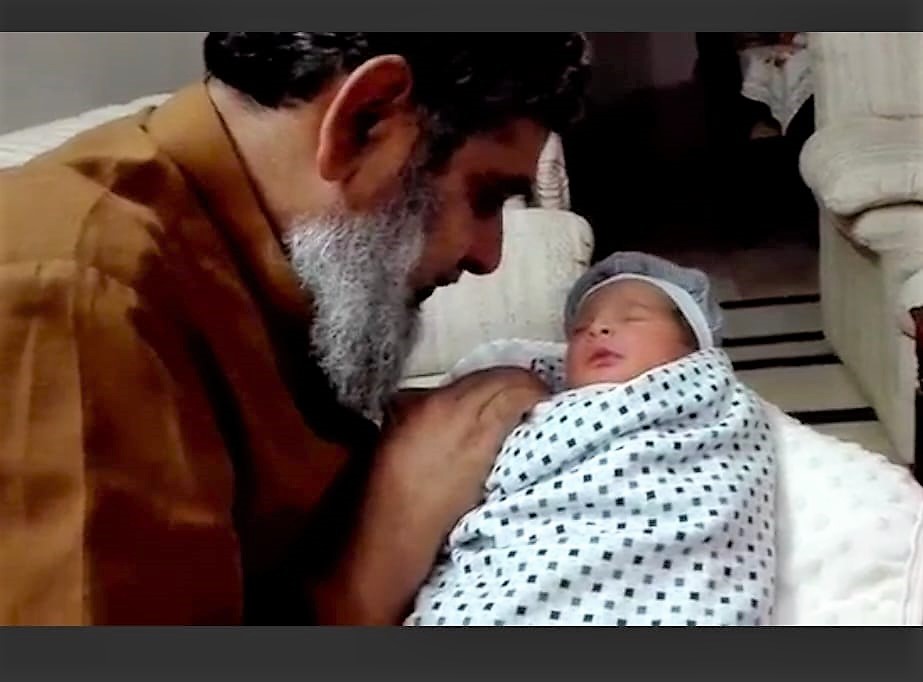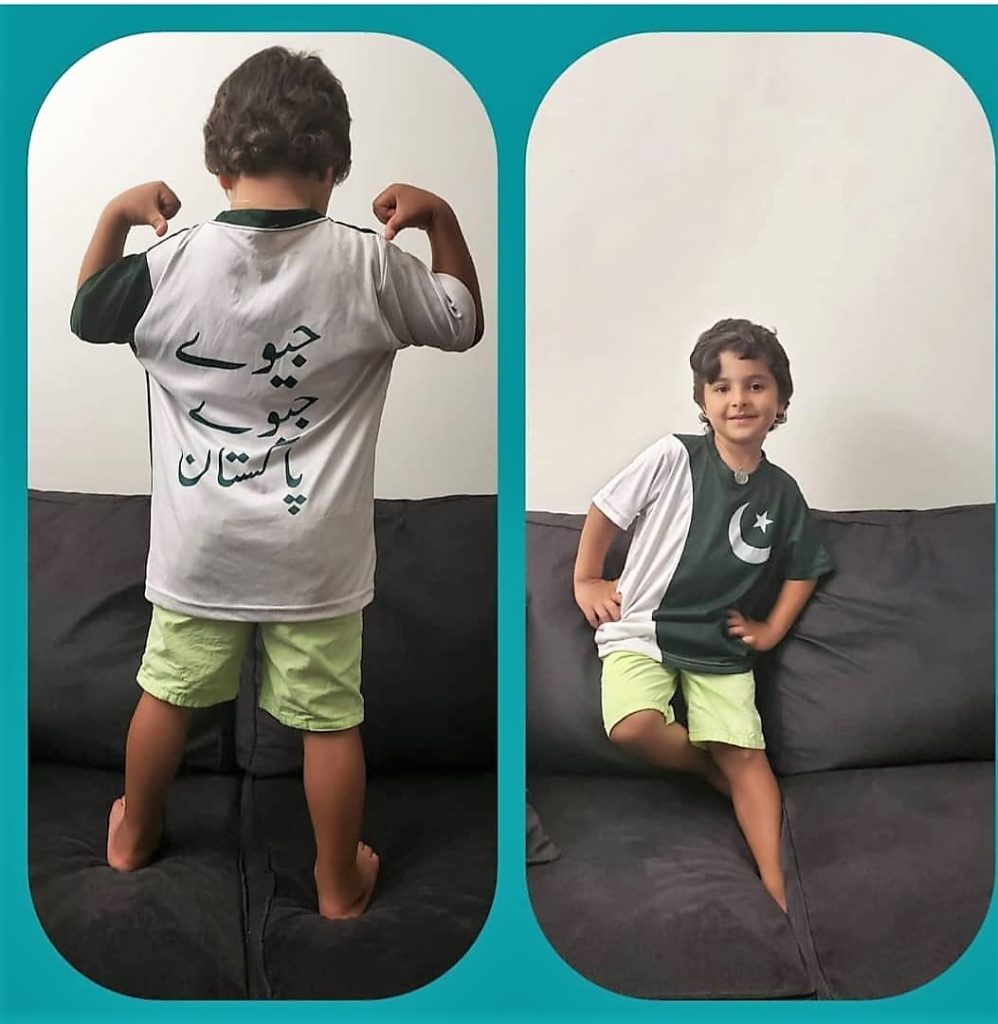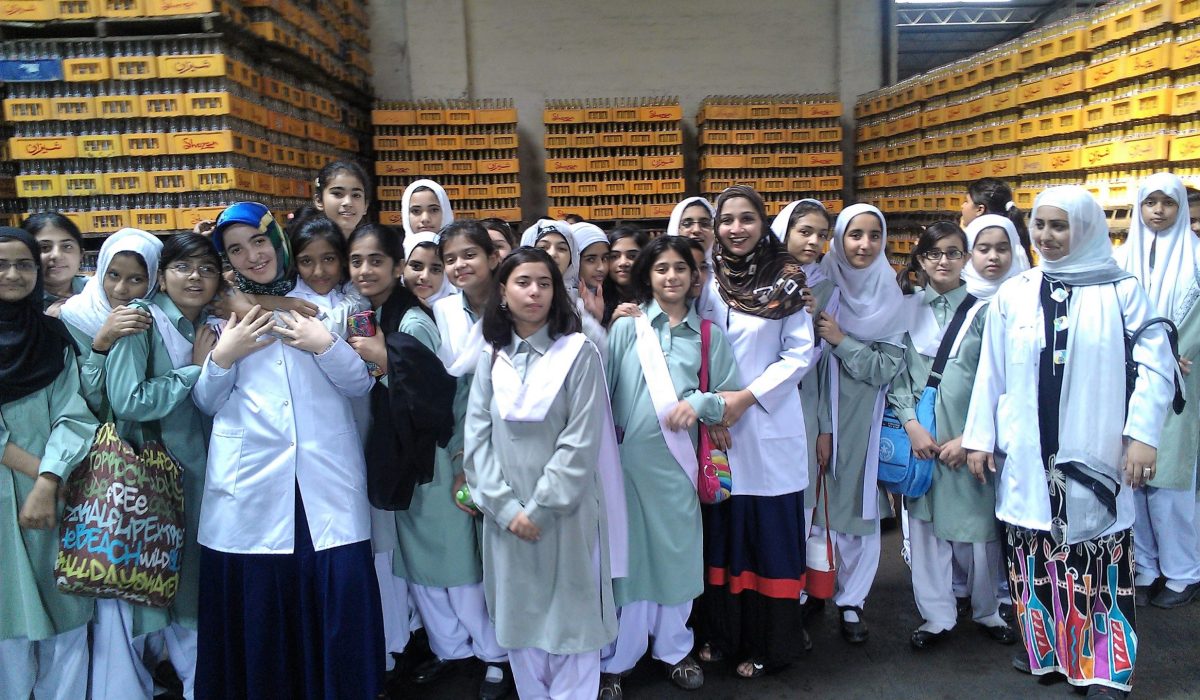Maths Teacher Hacer Bahar Çokarslan (3): We became like siblings with the Pakistani parents

The story of an adventurous journey from Kayseri to Lahore
January 2, 2022
Why did Pakistani businessmen show interest in Turkey trips?
January 5, 2022In the third part of our interview, Hacer Bahar Çokarslan, who taught Mathematics at the PakTurk Schools, narrated her marriage process and how that affected her services. Stating they established close friendships with Pakistani parents, Teacher Hacer said, “We were close with some parents like siblings.”
-You got married while in Lahore and came back to Islamabad. Can you tell us a little about your marriage process and your spouse?
I got married on August 1, 2014 in my second year in Pakistan and came to Islamabad as a bride. I joked with my colleagues, “I realized that the world is round, because I’m back where I started!” My husband, Hakan Çokarslan, came to Pakistan as a student mentor in 2005 and studied Computer Science at a university in Quetta. He and his friends could not attend the university most of the time, as they were frequently closed due to bombing incidents in the city. His life as a student took longer. He could graduate from the university in seven years. At first, he did different jobs because he knew Urdu well. Later, he taught Computer Science in schools. He was teaching in Islamabad when we got married. He spoke Urdu as fluent as his mother tongue. Sometimes we visited parents together. Over time, we made them our family friends. He stayed in Pakistan for 13 years. He now continues his profession in the schools here.
-How did being a married teacher affect your rapport with students?
I worked in the girls high school in Islamabad. As a student counsellor, I supervised the high school students. I built better rapport with them. I had boarding students. I could take them home for different functions. I had a more comfortable setting for supervision. I even invited my former students from the dormitory in Lahore to Islamabad. We did a reading retreat in my home. It was during my first pregnancy back then. 15 students and their mentors stayed at our house for a week.
Here is one thing which impressed me a lot: When I was a student in Turkey, we held a retreat at the house of our teacher, who was pregnant then. I was very impressed with her efforts. She did her best to cater to us. I tried to help her during the retreat. I don’t remember thinking, ‘I will do like her’, but in Islamabad, I thought of her. My students in Lahore were younger. I used to hug them often. There was one whom I would fondly call “My soft pillow!” I used to take the students from the dormitory with me whenever I went to visit the parents. We used to shoehorn into the school van. I would take that little girl in my arms. When my students from Lahore came to Islamabad, we hugged but they were surprised when I didn’t hold her. They discovered later it was because I was pregnant. It was very pleasant to receive my students at my home in Islamabad. It was more conducive to discuss various things at home. We used to prepare their favourite Turkish dishes together.
-Did they like Turkish food?
Not all of them, of course. They generally liked pastries. I spent hours preparing rice-stuffed vine leaves and they would just unwrap the leaf and eat the rice inside. In Lahore, we used to organize reading retreats for the boarding students. We used to prepare special menus in the dorm kitchen for a change for the students. We used to do the grocery shopping ourselves. Sometimes we used to prepare Pakistani meals with the students. There is a creamy chicken dish called ‘Butt Karahi’, my students taught me. It’s not too spicy. I also have a memory about this dish: My son was only ten months old. During a program, I had given this meal to her babysitter to eat herself. She also fed it to my child. She was glad my son had eaten a plateful of Butt Karahi. Soon, my toddler’s stomach was upset. It turned out that he could not chew, so he had swallowed every morsel directly. He vomited everything he had eaten. He kept distant from chicken dishes for a long time, but he liked them afterwards. Now we all love Pakistani dishes.

Sometimes I would take my son and go to the dormitory to stay with the boarding students. Students liked it much. While the boarding students were busy studying for the exams in dormitory, I used to take them the small gift packs I had especially prepared for them.
‘DO TURKISH TEACHERS NOT LOVE THEIR CHILDREN?’
In Lahore, day students attended to an overnight program held in the dormitory. Toilets had not been cleaned yet. I went in and cleaned. This caught the attention of the students. Because, especially in metropolitan cities, families of the students with higher income levels keep house-servants. Students would not even clean their own homes; sometimes they would litter the school grounds and even the dormitory. That was because they had been used to having someone else to arrive and clean after them. While this was the case, it seemed strange to them that a teacher cleaned the washrooms. They observed the sacrifice there.
Although it is not a written regulation in Pakistan, the caste system continues among some people. It is sad but true. The rich are extremely wealthy and the poor are extremely impoverished… Yet, at the school, all students were equal. We treated everyone equally. We wished to make the school staff feel they did not differ from us on the common denominator of humanity. We were all human and we treated everyone in a humane way. The boarding students in the dormitory understood us better. They used to say to one another “I’m going to be like that sister”.
One day, as students and teachers, we convened in a special function. We heard a little boy crying. I can’t remember now if it was mine or another friend’s child. I guess no one could care for him because everyone was in a rush. One student said, “Don’t you Turkish teachers love your children? They cry but you are not interested in them.” It coincided with the subject of the convention so much that Allah Almighty made her say that then. “Self-sacrifice, this is what Hizmet is all about. You care for someone else’s child more than your own. Do we stay in the dorm for nothing? Everything is for your sake!” I said.

I wished to reflect the emotion at that moment. Not an egotistical feeling, but the feeling doing things for others. The students had noticed this. You cared for them for neglecting your own child. Yet, I uttered nothing like “I’m going there to die and not to come back”, Allah knows. It is also possible you may be tested due to speaking so assertively.
-How was the attitude of the parents towards you?
Since I then had my house in Islamabad, I frequently invited parents. Especially during my pregnancy, it proved easier to invite them to my home than to commute to theirs. I used to cook Turkish food for them. Some parents would tell me about their troubles which they even did not tell their own families; they considered me as a confidant like a sister. Some would tell about the problems they had with their mothers-in-law. Such things could only be discussed with one you consider the closest. These are divine favours from Allah (swt). He made us love each. Nothing would happen if He did not will for that. Especially during our last months in Pakistan, our communication with parents was altogether closer. They supported us at a time we could not enter our schools. I still keep in touch with those parents. We are in the United States, but a parent still phones and asks to know about our financial condition. She asks if we have been in trouble during the pandemic. They still worry about us.
-Your first child was born in Pakistan. Were you alone at birth? Did anyone from your family come from Turkey as your attendant?
I experienced no problem in terms of health facilities. I was attended by a caring obstetrician. She used to verbalize the prayers I should read while I was in labour pains. Such people with strong links to prayer. She used to tell me the prayers which I did not know and say, “Recite these!” I was bashful of reciting the Qur’an in front of my students; they were very good reciters. I couldn’t pronounce the letters like them. My obstetrician was very caring. Since I made a C-section delivery, my sutures were infected. I was in constant contact with my obstetrician. I kept in touch with her later when I was in Pakistan. We also invited her to our house for iftar. She had her children enrolled in our schools. She even attended me from afar before delivering my second child in the United States.
I DID NOT EXPERIENCE THE HARDSHIPS SUFFERED BY THE PIONEERS
My mother came to Pakistan to attend me; since my son was born earlier than expected, she could not arrive before the birth. She came to Pakistan when the baby was five days old. She stayed for 82 days. I always remember my mother with tears in her eyes. When I was five or six years old, we migrated from the village to the city. My family moved to the city, but I stayed with my grandparents until the school started. In high school, I stayed in a dormitory some time because I was placed in the Anatolian Teacher High School in our district. Later, I was transferred to downtown Kütahya, but I stayed away from home for a while.
During my university years, I was not at home, even during the summers. We used to see each other from holiday to holiday. My mom would always cry whenever she said goodbye. I would cry too, but I would console her, “I am sad too, but these are temporary separations. No matter how long we are together here, we will not be able to get enough of each other. I hope we will be together in Heaven, insha’Allah.”
She thought of Pakistan as a land of poverty. Whenever I went to Turkey on vacations, I used to take biscuits and other things with me to say, “Look, everything’s available there!” Some older sisters would even pack home-roasted meat for their summer vacations in Turkey. It was because meat was inexpensive in Pakistan. I did the same and took roasted meat to Turkey once. When my mother came to Pakistan, she saw the facilities we had. She also witnessed the sincere rapport among the Turkish educationist families. She was relieved to see we had everything in our residence.

I did not experience the hardships suffered by the pioneers. I heard about the living conditions in places like Khairpur Mirs and Quetta from our colleagues who had first went there. I did not even have the chance to visit those places. I went to Pakistan in a relatively more comfortable time.
-What things attracted your attention the most about the social and cultural life of Pakistan?
First, their devotion to the sunnah (tradition) of our Holy Prophet Muhammad (s.a.s), especially in following the gist of the hadith “observing a sunnah earns a person the spiritual reward gained by hundred martyrs”, impressed me a lot. The greeting, ‘as-salaam alaikum’: the first expression babies in the cradle hears from their parents when they wake up, an unabbreviated greeting sent and received given and taken at length, even by Christians. “Allah Hafeez”: the best way to say, “I entrust you to Allah, al-Hafiz, Who protects you, watches over you, and shields you” whenever you leave. Black-kohled baby eyes, shaved baby hair, early circumcision of baby boys… Alhamdulillah, my son had his share of these prophetic traditions [sunnah]. According to Pakistani standards, shaving his hair on the 29th day of his birth was a late performance of the aqiqa tradition, but no problem. We added a little from our Turkish approach. We did not neglect to shave Taha’s hair.
Some families in Pakistan illuminate their houses like wedding houses before the Eid Milad-un Nabi (the Blessed Birth) – known as the Reghaib Night in Turkey – and keep it that way for days. Tents are set up in front of houses, naats (hymns) are recited and food is distributed to everyone. Months of Ramadan are very colourful in Pakistan. The people in Pakistan observe the sunnah [traditions of the Holy Prophet Muhammad (s.a.s)] keenly. As the month of Ramadan begins, market shelves are filled with ‘besan (chickpea flour)’ for the ‘pakora’ to be fried daily, and ‘basmati’ rice for ‘biryani’ to headline the iftar tables. People shop intensely. Clothing and jewellery shops and henna stalls are frequented by many. Such sights would take me back to the Ramadans of my childhood. The continuation of Ramadan scenes in Pakistan which we could not see in Turkey over the years made that place unforgettable for me. Iftar tables would be set on roadsides for the needy and the travellers. The tarawih prayers performed with the thorough recitation of the Holy Qur’an during the month of Ramadan and the guests who politely refused the iftar invitations in order not to miss this prayer blessing or come on the condition they left timely to reach the tarawih prayers are also unforgettable.
I should also mention the Pakistani flavours: ‘White karahi’ which was the saviour of my guest menus; ‘pakora‘, the impending reason why I will go to Pakistan even for a moment and a taste I did not neglect to fry at least once during Ramadan; two cups of ‘doodh-patti’ (milk tea) fondly prepared when my and my spouse’s longing for Pakistan peaks; ‘joshanda’, the unique herbal tea as the saviour at times of cough and cold, and sumptuous ‘biryani’… Thank goodness, I can find these and their ingredients in Asian markets here.
To be continued…
***





No Comment.